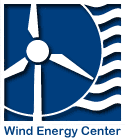Abstract:
Access to an uninterrupted electricity supply is an important driver of growth and human development. However, people in many developing countries do not yet have access to a steady electricity supply – partly due to power cuts, blackouts, and load-shedding. Such disasters exert pressure on households and hinder energy modernization. This paper investigates how households’ fuel choices are possibly distorted amidst unreliable electricity supply. It studied households’ cooking fuel choices and fuel switching behavior in the face of the load-shedding problem in Nepal (2006 – 2016). This study employs two National Living Standard Surveys (NLSSs) and four Annual Household Surveys (AHSs). Multinomial Logit and Multinomial Probit model estimations suggest that the crisis delayed households’ energy modernization drive. Furthermore, households diversified their fuel basket and increased ‘energy stacking’ in response to the crisis. Despite a trend of increasing preferences towards modern fuels, significant reliance on traditional fuels remains. Therefore, it is recommended to improve supply reliability remarkably for a successful transition toward modern energy. Moreover, the nature of the crisis needs to be well understood to formulate efficient policies on energy transition since different crises might affect households differently.
Bio:
Dhiroj is a PhD third year student in the Department of Resource Economics. He is interested in the economics of energy and environment. He got his MS degree in Environment and Resource Economics (ENRE) from the University of Rhode Island. There, he did valuation of local conservation areas using hedonic approach. Dhiroj is from Nepal. He did his BS in Forestry in Nepal itself. He won South Asian Economics Student Meet (SAESM) award in 2012.

